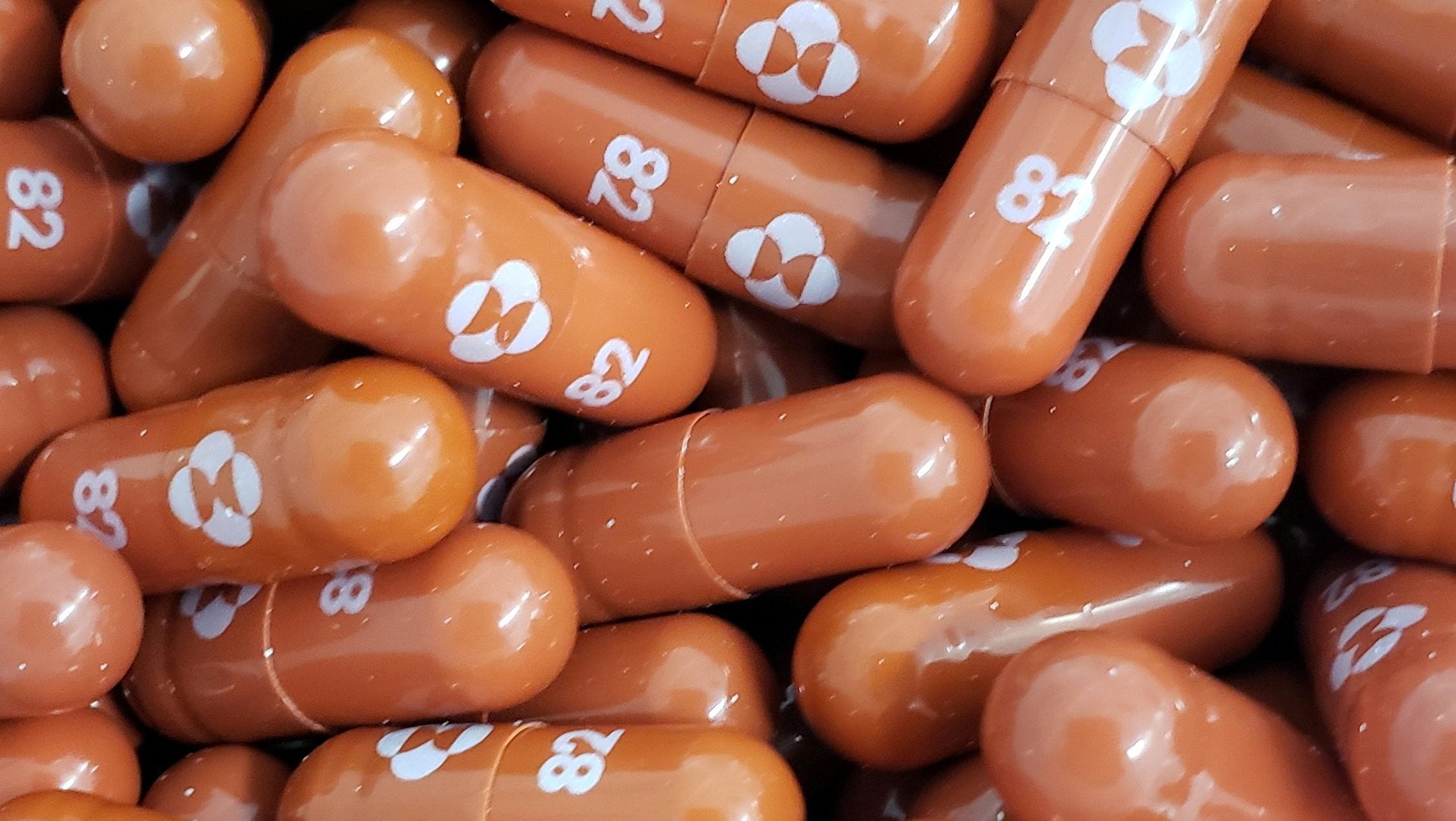Merck’s new Covid-19 drug could be one of the most lucrative drugs ever
American pharmaceutical company Merck is ready to seek approval for what would be the first antiviral drug against Covid-19, the company announced today. The drug, named molnupiravir, reduces the risk of hospitalization or death by 50% in Covid-19 patients with mild and moderate symptoms compared with placebo, Merck said.


American pharmaceutical company Merck is ready to seek approval for what would be the first antiviral drug against Covid-19, the company announced today. The drug, named molnupiravir, reduces the risk of hospitalization or death by 50% in Covid-19 patients with mild and moderate symptoms compared with placebo, Merck said.
After the positive results of its clinical trials, Merck plans to submit the data for review and obtain emergency authorization from the Food and Drug Administration (FDA) as soon as possible. Other companies, including Pfizer, are also testing antiviral drugs and are expected to present the results of their trials in the coming weeks.
How does Merck’s Covid-19 antiviral molnupiravir work?
Molnupiravir is an antiviral that stops the Covid-19 virus from replicating in the system, preventing an increase in the viral load and eventually stopping the infection. The treatment, consisting of four capsules twice a day for five days, can be taken at home, unlike other Covid-19 therapies. The drug has shown to be effective against all the Covid-19 variants known today.
This makes molnupiravir far more practical than the other treatment currently available for Covid-19, monoclonal antibodies—made by Regeneron, and GlaxoSmithKline (GSK) with Vir Biotechnology—which require intravenous administration in hospitals or clinical settings. Molnupiravir is cheaper, too. At about $700 per course, it costs nearly half the price of Regeneron’s $1,250 cocktail, and a third of GSK’s $2,100 treatment. It is less effective, however: Antibody cocktails have had a success rate of 70% to 85% in reducing hospitalization and death.
Still, the simpler administration makes the pills easier to prescribe and able to have a wider reach, especially where hospitals are dealing with shortages or in areas where access to healthcare facilities is limited.
How much will Merck make from molnupiravir?
In June, months before it had even concluded its trial, Merck signed an agreement with the US government to provide 1.7 million courses of treatments at the price of about $700 each, for a total of $1.2 billion.
The company has said it has agreements with a number of other governments. Though it hasn’t disclosed details on those agreements, it said it will price the drug in different countries according to their income levels. The drugmaker also plans to license the drug to some Indian manufacturers to produce a generic version of the medication for low-income markets.
At the moment, the company expects to produce 10 million courses of the drug before the end of 2021 alone, which could bring in revenue up to $7 billion. This would make it, in only a few weeks, one of the 10 most lucrative drugs ever, competing with Gilead’s Biktarvin, an HIV drug approved in 2018, which had revenue for $7.2 billion in 2020. It would also be Merck’s second most valuable drug, after its blockbuster cancer drug Keytruda, which grosses over $14 billion a year and is the second most lucrative drug after AbbVie’s Humira, which treats arthritis.
With nearly 500,000 new Covid-19 cases in the world every week, the potential market for the drug could expand far beyond the 10 million in the coming months.